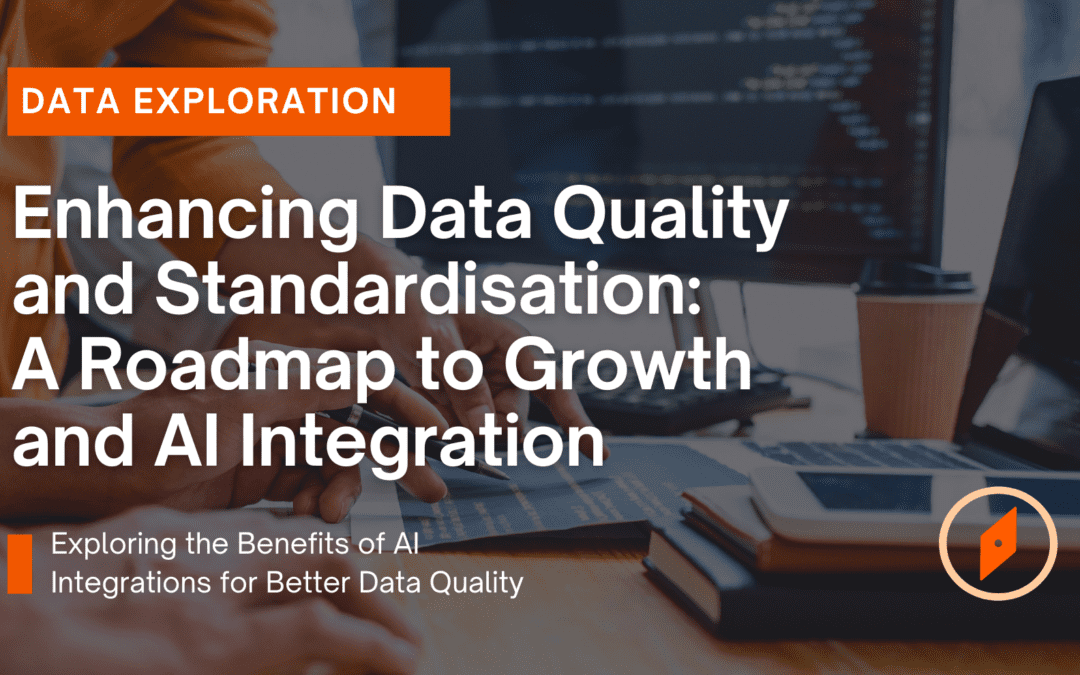Imagine if Google Maps was using a 25-year-old city plan. Finding directions for where you’re going would take double the effort since the map would...


Optimising Your CRM: Essential Housekeeping Tasks During Summer
Enhance Accuracy and Efficiency in Your B2B Dataset with Key Maintenance Activities
During the quieter summer months, businesses can take advantage of the downtime to focus on essential housekeeping tasks for their CRM or B2B datasets.
Ensuring that your data is accurate, clean, and ready for future business needs is crucial for maintaining efficiency and effectiveness in your operations. There are a few key tasks to consider for optimising your CRM during this period.
Data management is a continuous process that requires regular attention to prevent the accumulation of errors and inefficiencies.
The following tasks are vital for maintaining a robust and reliable CRM system:
1. Data Cleaning
- Duplicate Removal: Identify and merge duplicate records to maintain a single source of truth. This prevents confusion and ensures consistency.
- Data Validation: Verify the accuracy of contact information, such as email addresses, phone numbers, and mailing addresses to maintain reliable communication channels.
- Standardisation: Ensure data is consistent in format, such as dates, phone numbers, and job titles, which simplifies data processing and analysis.
2. Data Enrichment:
- Update Information: Refresh outdated information like job titles, company information, and contact details to keep your database current and relevant.
- Add Missing Data: Fill in missing fields to complete customer profiles, providing a comprehensive view of your contacts.
3. Segmentation and Categorisation:
- Customer Segmentation: Organise your contacts into meaningful segments based on industry, location, company size, etc., to tailor your marketing efforts effectively.
- Tagging: Apply relevant tags or labels for better sorting and searching capabilities, enhancing the usability of your CRM.
4. Database Organisation:
- Field Consistency: Ensure that fields across the database are uniformly applied and consistently filled, which facilitates better data management.
- Archiving: Archive old records that are no longer relevant but may need to be retained for historical purposes, keeping your active database lean and efficient.
5. Integration Check:
- System Integrations: Review and test integrations with other systems (e.g., marketing automation tools, email systems) to ensure data flows seamlessly between platforms.
- API Updates: Check for any updates or changes in APIs that could affect data integration, preventing potential disruptions.
6. Compliance and Security:
- GDPR Compliance: Ensure your data handling practices comply with GDPR or other relevant data protection regulations, safeguarding customer privacy and avoiding legal issues.
- Data Security: Review and update security protocols to protect sensitive customer information from breaches and unauthorized access.
7. Reporting and Analytics:
- Update Reports: Refresh your reports and dashboards to reflect the most current data and insights, providing accurate and actionable information.
- Identify Trends: Analyse data trends to identify opportunities or areas for improvement, driving informed decision-making.
8. Training and Documentation:
- User Training: Conduct training sessions for team members on new features or best practices for using the CRM, ensuring they are equipped to utilise the system effectively.
- Documentation: Update internal documentation and guides to reflect any changes made to the CRM system or data handling processes, maintaining clear and up-to-date references.
9. Customer Engagement:
- Re-engagement Campaigns: Use the clean and updated data to reach out to inactive contacts with re-engagement campaigns, revitalising relationships and uncovering new opportunities.
- Feedback Collection: Gather feedback from key customers to understand their needs and improve your CRM practices, enhancing customer satisfaction and loyalty.
Regular CRM maintenance is a cornerstone of effective business operations. Historically, companies that have prioritised data cleanliness and accuracy have seen significant improvements in their marketing efficiency and customer satisfaction. For instance, previous updates to CRM systems have often led to better-targeted campaigns and higher engagement rates.
By focusing on these tasks during the quieter summer months, businesses can ensure their CRM or B2B dataset is in top shape, setting the stage for success as business activities pick up. Maintaining a clean, accurate, and well-organised CRM not only supports better decision-making but also enhances customer relationships and drives business growth.
Investing time in CRM maintenance is a strategic move that pays off by improving data quality, ensuring compliance, and enhancing overall operational efficiency. As you prepare for the busier seasons ahead, these housekeeping tasks will position your business to leverage its CRM system to its fullest potential.
Partner with Sunstone for Expert CRM Management
At Sunstone, we specialise in optimising your CRM and B2B datasets to ensure they are accurate, clean, and ready to meet your business needs. Our team of experts can assist you with every aspect of CRM maintenance, from data cleaning and enrichment to compliance and security.
Contact us now to learn how we can support your CRM maintenance needs and set you up for future success.
Contact Sunstone Today
For more information or to discuss how we can help your business, please contact:
Aisling Ní Mhuirí
Data Director
Ensure your CRM is a powerful tool, not a burden. Let Sunstone handle the heavy lifting so you can focus on what you do best—growing your business.
Fill Out the Form Below to Receive Our Essential Whitepaper on CRM Data Optimisation
Take your CRM to the next level with our expert guide! Download our comprehensive whitepaper, “CRM Data Optimisation: Best Practices for Cleaning, Enriching, and Managing Your B2B Dataset,” and discover how to keep your data accurate, clean, and ready for future business needs.
Learn practical steps for data cleaning, enrichment, segmentation, and compliance to ensure your CRM system operates at peak efficiency. This whitepaper provides actionable strategies and industry best practices to enhance your data management and boost your business performance.
Don’t miss the opportunity to streamline your CRM processes and unlock new growth potential. Download now!
Keep up-to-date with more data-backed insights:
Related Articles
Maintaining Data Hygiene
The Power of Data Analysis in Sales and Marketing
Data is so much more than just numbers on a screen—it's a goldmine of insights waiting to be uncovered. For sales and marketing teams, data analysis...
Why NACE Codes Fall Short, and How MAP is Changing the Game
Since 1970, NACE codes have been the most widely used classification system throughout Ireland and Europe for grouping organisations according to...






Recent Comments